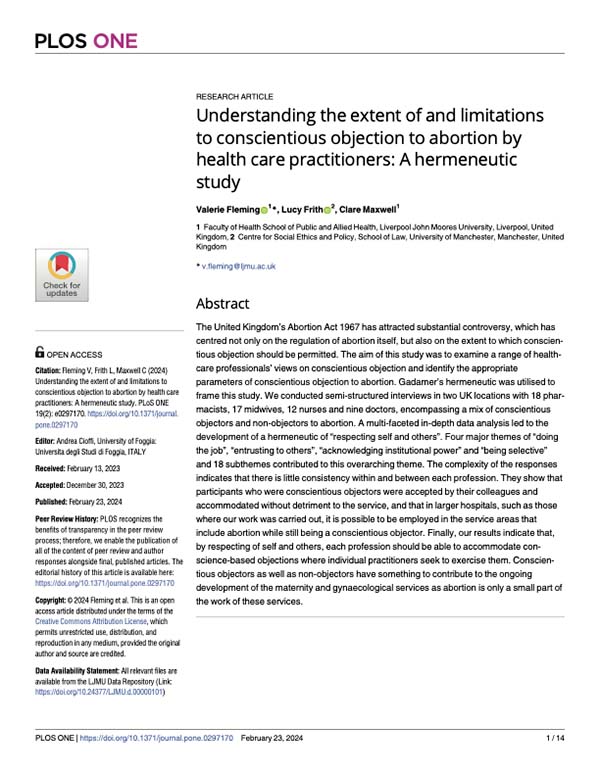Understanding the extent of and limitations to conscientious objection to abortion by health care practitioners: A hermeneutic study
Publicación
Idioma
Autoría
Resumen
The United Kingdom’s Abortion Act 1967 has attracted substantial controversy, which has centred not only on the regulation of abortion itself, but also on the extent to which conscientious objection should be permitted. The aim of this study was to examine a range of health-care professionals’ views on conscientious objection and identify the appropriate parameters of conscientious objection to abortion. Gadamer’s hermeneutic was utilised to frame this study. We conducted semi-structured interviews in two UK locations with 18 pharmacists, 17 midwives, 12 nurses and nine doctors, encompassing a mix of conscientious objectors and non-objectors to abortion. A multi-faceted in-depth data analysis led to the development of a hermeneutic of “respecting self and others”. Four major themes of “doing the job”, “entrusting to others”, “acknowledging institutional power” and “being selective” and 18 subthemes contributed to this overarching theme. The complexity of the responses indicates that there is little consistency within and between each profession. They show that participants who were conscientious objectors were accepted by their colleagues and accommodated without detriment to the service, and that in larger hospitals, such as those where our work was carried out, it is possible to be employed in the service areas that include abortion while still being a conscientious objector. Finally, our results indicate that, by respecting of self and others, each profession should be able to accommodate conscience-based objections where individual practitioners seek to exercise them. Conscientious objectors as well as non-objectors have something to contribute to the ongoing development of the maternity and gynaecological services as abortion is only a small part of the work of these services.

